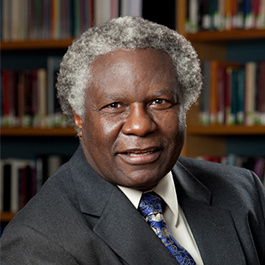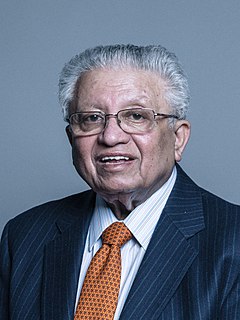
Innovation is the practical implementation of ideas that result in the introduction of new goods or services or improvement in offering goods or services. ISO TC 279 in the standard ISO 56000:2020 defines innovation as "a new or changed entity realizing or redistributing value". Others have different definitions; a common element in the definitions is a focus on newness, improvement, and spread of ideas or technologies.

The National Physical Laboratory (NPL) is the national measurement standards laboratory of the United Kingdom. It is one of the most extensive government laboratories in the UK and has a prestigious reputation for its role in setting and maintaining physical standards for British industry.
Ecological modernization is a school of thought in the social sciences that argues that the economy benefits from moves towards environmentalism. It has gained increasing attention among scholars and policymakers in the last several decades internationally. It is an analytical approach as well as a policy strategy and environmental discourse.

Aberystwyth University is a public research university in Aberystwyth, Wales. Aberystwyth was a founding member institution of the former federal University of Wales. The university has over 8,000 students studying across 3 academic faculties and 17 departments.

The Royal Geographical Society (RGS) is a learned society and professional body for geography based in the United Kingdom. Founded in 1830 for the advancement of geographical sciences, the Society has 16,000 members, with its work reaching the public through publications, research groups and lectures.

Gresham College is an institution of higher learning located at Barnard's Inn Hall off Holborn in Central London, England. It does not enroll students or award degrees. It was founded in 1596 under the will of Sir Thomas Gresham, and hosts over 140 free public lectures every year. Since 2001, all lectures have also been made available online.

The Royal Society of Edinburgh is Scotland's national academy of science and letters. It is a registered charity that operates on a wholly independent and nonpartisan basis and provides public benefit throughout Scotland. It was established in 1783. As of 2021, there are around 1,800 Fellows.

Cranfield University is a British postgraduate public research university specialising in science, engineering, design, technology and management. Cranfield was founded as the College of Aeronautics (CoA) in 1946. Through the 1950s and 1960s, the development of aircraft research led to growth and diversification into other areas such as manufacturing and management, and in 1967, to the founding of the Cranfield School of Management. In 1969, the College of Aeronautics was renamed the Cranfield Institute of Technology, was incorporated by royal charter, gained degree awarding powers, and became a university. In 1993, it adopted its current name.

Sir David Anthony King is a South African-born British chemist, academic, and head of the Climate Crisis Advisory Group.

Research funding is a term generally covering any funding for scientific research, in the areas of natural science, technology, and social science. Different methods can be used to disburse funding, but the term often connotes funding obtained through a competitive process, in which potential research projects are evaluated and only the most promising receive funding. It is often measured via Gross domestic expenditure on R&D (GERD).

Calestous Juma was a Kenyan scientist and academia, specializing in sustainable development. He was named one of the most influential 100 Africans in 2012, 2013 and 2014 by the New African magazine. He was Professor of the Practice of International Development and Faculty Chair of the Innovation for Economic Development Executive Program at Harvard Kennedy School. Juma was Director of the School's Science, Technology and Globalization Project at Harvard Kennedy School as well as the Agricultural Innovation in Africa Project funded by the Bill and Melinda Gates Foundation. His last book, Innovation and Its Enemies: Why People Resist New Technologies, was published by Oxford University Press in 2016.

Sushanta Kumar Bhattacharyya, Baron Bhattacharyya, was a British-Indian engineer, educator and government advisor. In 1980, he became Professor of Manufacturing Systems at the University of Warwick and founded the Warwick Manufacturing Group. In 2004, he was made a Life Peer and became a member of the House of Lords.
The Chief Scientific Adviser to the UK's Ministry of Defence is responsible for providing strategic management of science and technology issues in the MOD, most directly through the MOD research budget of well over £1 billion, and sits as a full member of the Defence Management Board and the Defence Council, the two most senior management boards within the MOD. There is also a Chief Scientific Adviser (Nuclear), responsible for the MOD’s nuclear science and technology programme, currently held by Professor Robin Grimes.
The United Kingdom Space Agency (UKSA) is an executive agency of the Government of the United Kingdom, responsible for the United Kingdom's civil space programme. It was established on 1 April 2010 to replace the British National Space Centre (BNSC) and took over responsibility for government policy and key budgets for space exploration; it represents the United Kingdom in all negotiations on space matters. The Agency "[brings] together all UK civil space activities under one single management". It is based at the former BNSC headquarters in Swindon, Wiltshire.
The School of Biological Sciences is a research-led academic community at the University of East Anglia. It works with partners in industry on a range of activities, including translating research discoveries into products, making knowledge and research expertise available through consultancies, contract research and provision of analytical services, as well as partnering industry in training both undergraduate and postgraduate students.

Science and technology in the United Kingdom has a long history, producing many important figures and developments in the field. Major theorists from the United Kingdom of Great Britain and Northern Ireland include Isaac Newton whose laws of motion and illumination of gravity have been seen as a keystone of modern science and Charles Darwin whose theory of evolution by natural selection was fundamental to the development of modern biology. Major scientific discoveries include hydrogen by Henry Cavendish, penicillin by Alexander Fleming, and the structure of DNA, by Francis Crick and others. Major engineering projects and applications pursued by people from the United Kingdom include the steam locomotive developed by Richard Trevithick and Andrew Vivian, the jet engine by Frank Whittle and the World Wide Web by Tim Berners-Lee. The United Kingdom continues to play a major role in the development of science and technology and major technological sectors include the aerospace, motor and pharmaceutical industries.

Technology society and life or technology and culture refers to the inter-dependency, co-dependence, co-influence, and co-production of technology and society upon one another. Evidence for this synergy has been found since humanity first started using simple tools. The inter-relationship has continued as modern technologies such as the printing press and computers have helped shape society. The first scientific approach to this relationship occurred with the development of tektology, the "science of organization", in early twentieth century Imperial Russia. In modern academia, the interdisciplinary study of the mutual impacts of science, technology, and society, is called science and technology studies.
The 2001 New Year Honours List is one of the annual New Year Honours, a part of the British honours system, where New Year's Day, 1 January, is marked in several Commonwealth countries by appointing new members of orders of chivalry and recipients of other official honours. Awards for 2001, announced on 30 December 2000, included the United Kingdom, New Zealand, the Cook Islands, Barbados, Grenada, Papua New Guinea, Saint Vincent and the Grenadines, Belize and Saint Christopher and Nevis.
Queen's Birthday Honours are announced on or around the date of the Queen's Official Birthday. Publication dates vary from year to year. Most are published in supplements to the London Gazette and many are formally conferred by the monarch some time after the date of the announcement, particularly for those service people on active duty.
The 2020 New Year Honours are appointments by some of the 16 Commonwealth realms to various orders and honours to recognise and reward good works by citizens of those countries. The New Year Honours are awarded as part of the New Year celebrations at the start of January and were officially announced in The London Gazette on 27 December 2019. Australia, an independent Realm, has a separate honours system and its first honours of the year, the 2020 Australia Day Honours, coincide with Australia Day on 26 January.












